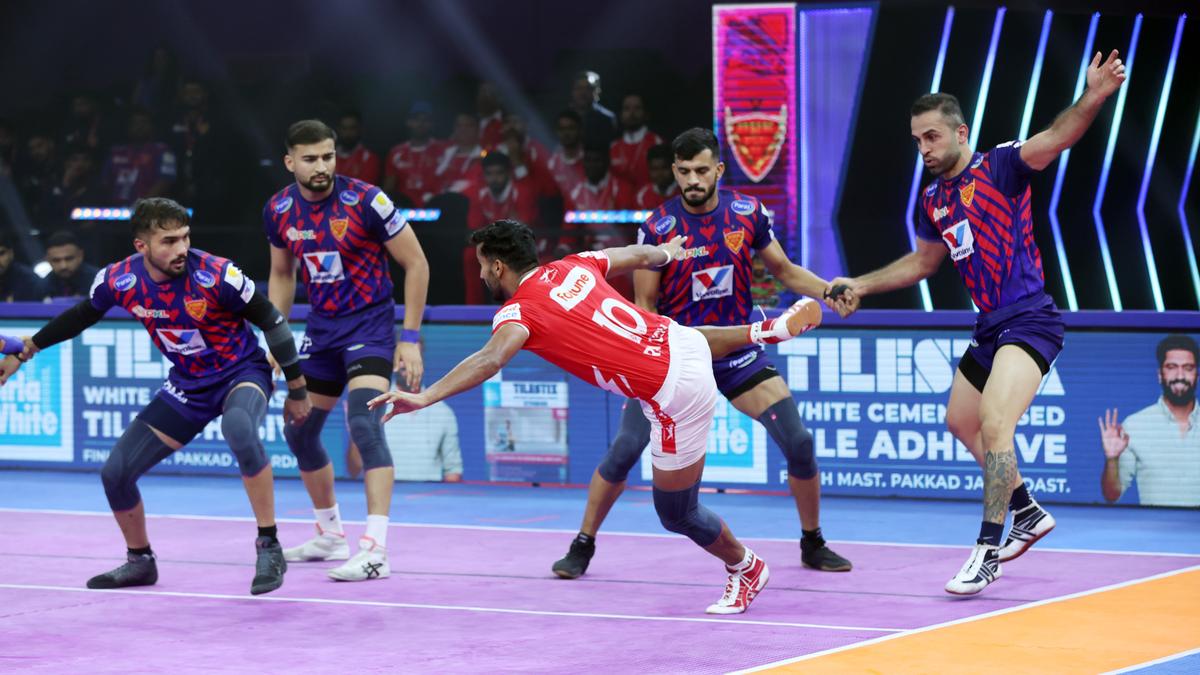After the success of PKL, government should pitch kabaddi as an Olympic sport: Anupam Goswami
Kabaddi is considered to be one of the most ancient sports in India, with a few historians even suggesting that it dates back to the Vedic period. Till about a couple of decades ago, this contact team sport was considered a rustic sport, predominantly played in the rural backdrop of the country.
But today, it is no more, thanks to Mashal Sports, the organisers of the Pro Kabaddi League (PKL). The sport reached almost every household overnight, players have become celebrities, teams have carved their own brand identities, and PKL is only behind cricket in terms of viewership.
Like all sports leagues, PKL has had its own ups and downs in its journey.
“Choosing an indigenous team contact sport as kabaddi, itself was a daring move. But Mashal and then Star India decided to do it. The journey began in 2014 with just eight teams, and today we are in 12 season with 12 teams, and our popularity is only growing. The very fact that Kaddadi players today are paid the highest salaries, when compared to any other league, except cricket, stands as a testimony to its success,” Anupam Goswami, Business Head of Mashal Sports and league chairman of PKL, said in an exclusive chat with Sportstar.
What also contributes to PKL’s success is that the owners of each team, ranging from the Kotaks to Abhishek Bachchan and from the Adanis to GMR, are passionate about the game, their club, the league, and are focussed on scouting the best talent from across India and developing them into fine athletes.
The fan following has also steadily grown. In 2014, PKL caught the imagination of the nation, generating a viewership of over 43 crores across the country in its inaugural season, the highest after cricket.
This had set the ball rolling, but the challenge was to present a game like kabaddi before a new-age sports fan and present it as a contemporary and future-looking sport.
According to Anupam, the role of content is important. “The sport has to keep evolving and cannot take the audience for granted. The challenge is to innovate and make it more engaging for the contemporary and the next generation. This is why we have introduced the tie-breaker format from this year, so that there is a decisive result in every game,” he noted.
“We have not only groomed the players, when it comes to their looks or personalities, but also created a very strong programme called the ‘new young players’ to scout talent and develop them into international standard players. Now the clubs themselves are scouting and training them. In 2016, Mashal scouts toured at least 14 states to select players for the 2017 season, when we pitched 12 teams in the fray.”
“Today, we have a huge pool of talented players, and they form the base for the national team. It is now up to the government and the federations to pitch kabaddi as an Olympic sport. The federation should try for the 2032 Brisbane Games and at least pitch it for the 2036 Olympics, which India has bid for. But our primary focus should be to pitch the game for the 2030 Commonwealth Games, which again India might be hosting.”
On talent and international recognition, Anupam said, “PKL has already got international recognition, as we have players from Iran and other countries participating, as the league has made it mandatory to have at least two foreign players. But when it comes to the Olympics, the game is played in at least 35 countries, and at least six countries have very strong teams, which include the teams from India, Iran, Kenya, and South Korea.”
Although Haryana contributes about 53 per cent of the talent pool, when it comes to consumption of PKL, the southern states like Andhra Pradesh, Telangana, Karnataka, and Tamil Nadu, along with Maharashtra, lead the way.
Talking about the business model of PKL, he remarked, “It is difficult for every owner to break even in the sports league business in the first few years. Even today, the balance sheets of many Spanish football clubs are still in the red. But at least 75 per cent of the owners in PKL have already achieved break-even.
“It is difficult for the clubs to make money from merchandise or gate collection, as kabaddi still does not have an exclusive stadium. Our main source of income is media rights. Overseas, the media rights tune up to about 60 to 65 per cent, but in India, it is about 90 per cent. We have been able to sell the rights to JioHotstar for an average annual value of around Rs. 180 crores for seasons 8 to 12 (2021- 25).”
Published on Sep 12, 2025


